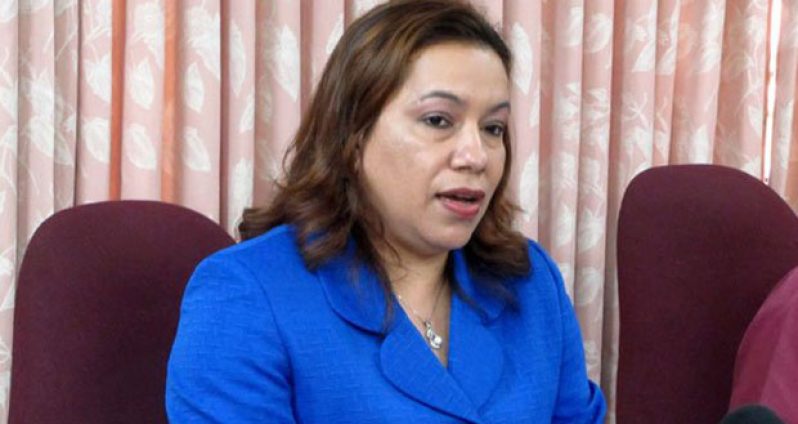GUYANA presented its report to the United Nations (UN), yesterday, as part of its obligations under the Universal Periodic Review (UPR) process.The UPR is a unique process that involves a review of the human rights records of all UN Member States.
Head of the Presidential Secretariat (HPS), Dr. Roger Luncheon, yesterday disclosed that Guyana is represented in Geneva, Switzerland, by Foreign Affairs Minister, Carolyn Rodrigues-Birkett.
Speaking during his weekly post-Cabinet press conference, he explained Presidential Advisor on Governance, Gail Teixeira, and a representative from the Ministry of Legal Affairs were also expected to be part of Guyana’s delegation to the UN; however, prevailing weather conditions in North America prevented this.
“Minister Carolyn Rodrigues-Birkett was the sole delegate from Guyana at the UPR review of Guyana…Minister Rodrigues-Birkett unexpectedly assumed total responsibility for defending the Guyana UPR submission,” he said.
He added that Guyana’s report includes updates on recommendations made in 2010 for Guyana to act on, as well as an update on current levels of compliance with UN stipulations.
“The report not only addressed Guyana’s compliance, but also addressed recommendations that had arisen in the period UPR event in 2010, where Guyana presented its previous report,” the HPS said.
The UPR is a country-driven process, under the auspices of the Human Rights Council, which provides the opportunity for each country to declare what actions they have taken to improve the human rights situations in their countries and to fulfil their human rights obligations. As one of the main features of the Council, the UPR is designed to ensure equal treatment for every country when their human rights situations are assessed.
Dr. Luncheon said, “The routine is fairly simple. The working group examines Guyana’s report, with the assistance of the Guyanese delegation…(the activity) is held during a session of any one day, in which case for Guyana it is today (yesterday).
“…that engagement allows members of the international community, nation states, participating parties, NGOs (non-governmental organisations), both local and international, to join in the review of Government’s report, which spans a period from our last review to, I believe, October or November of 2014.”
Dr. Luncheon noted too that by tomorrow preliminary outcomes of the UN session are expected to be released. “We are told that by Friday, a transcript will be formally provided,” he said.
Once Guyana’s report is accepted by the Human Rights Council, it will form part of the deliberations at a subsequent meeting, scheduled for June, after which the contents of Guyana’s report will be made public.
“Once the review is acceptable to all, it is then submitted to the UN Human Rights Council, where, in June this year, Guyana and the Council will meet, confirm mutual satisfaction and Guyana’s official report to the UPR will be then made available publicly,” he said.
The UPR was created through the UN General Assembly on 15 March 2006 by a resolution which established the Human Rights Council itself. It is a cooperative process which, by October 2011, has reviewed the human rights records of all 193 UN Member States. Currently, no other universal mechanism of this kind exists. The UPR is one of the key elements of the Council which reminds States of their responsibility to fully respect and implement all human rights and fundamental freedoms. The ultimate aim of this mechanism is to improve the human rights situation in all countries and address human rights violations wherever they occur. (Vanessa Narine)












